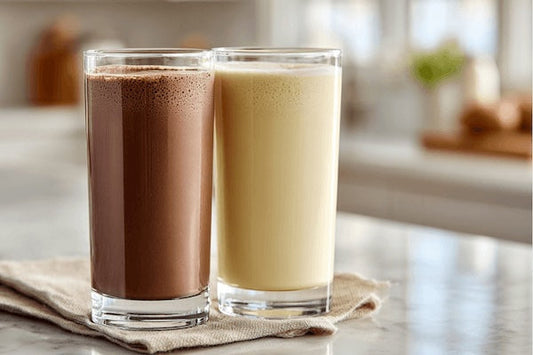Looking into meal supplement shakes for weight loss but confused by terms like meal replacement shakes and diet shakes? This listicle breaks down the differences clearly, with women’s health in mind—so you can pick a formula that supports energy, satiety, and sustainable results.
Quick start: If you prefer a structured plan, try replacing breakfast (and optionally lunch) with a complete meal replacement on busy weekdays, then enjoy a high-protein, lower-carb dinner. Explore the Eve Biology Starter Pack (30 meals) or the full-size Eve Biology Meal Replacement Shakes.
Table of Contents
- 1) Meal Replacement vs Diet Shakes: The Basics
- 2) Which Works Better for Weight Loss?
- 3) Women’s Health: Hormones, Bones, and Energy
- 4) Satiety and Cravings
- 5) What to Look For on the Label
- 6) Simple Weekly Framework
- 7) Common Mistakes to Avoid
- 8) Helpful Reads
- FAQs: Meal Supplement Shakes for Weight Loss
1) Meal Replacement vs Diet Shakes: The Basics
- Meal replacement shakes are designed to replace a full meal. They typically include quality protein, some carbs, healthy fats, fibre, and essential vitamins/minerals to keep you fuelled.
- Diet shakes are usually very low-calorie drinks meant as snacks or “slimming” beverages. Many don’t have the nutrition to function as a true meal.
More on how structured shake plans work in our guide: A Short Guide to the Shake Diet.
2) Which Works Better for Weight Loss?
- Meal replacements help create a calorie deficit while preserving nutrition—key for steady energy and consistency.
- Diet shakes can reduce calories short-term but may leave you hungry, making snacking and rebound eating more likely.
Understanding midlife weight change helps too—see Why You Gain Weight in Menopause.
3) Women’s Health: Hormones, Bones, and Energy
- Prioritise protein: 15–25g per serving supports muscle maintenance—especially important in peri/menopause.
- Micronutrients matter: Look for calcium, vitamin D, iron, B vitamins, magnesium, and zinc.
- Blood sugar balance: Fibre + adequate protein can help with steady energy and fewer cravings.
Deep dive on benefits here: Meal Replacement Shakes Benefits.
4) Satiety and Cravings
- Meal replacements: Protein + fibre keep you fuller for longer, making a calorie deficit easier to maintain.
- Diet shakes: Often leave you hungry again within an hour, which can undermine progress.
5) What to Look For on the Label
- Protein: 15–25g per meal (whey, pea, faba bean, or a blend)
- Calories: ~200–400 for a true meal; avoid ultra-low calories for meals
- Fibre: 3–8g
- Micronutrients: Calcium, vitamin D, B vitamins, iron, magnesium, zinc
- Sugars: Keep added sugar modest; consider overall carbs if managing blood sugar
- Fats: Include some healthy fats for satiety
6) Simple Weekly Framework
- Weekdays: Replace breakfast (and optionally lunch) with a complete meal replacement; add a protein-rich dinner and vegetables.
- Weekends: Enjoy three balanced meals; keep portions mindful and stay active.
Need a place to start? Compare Eve Biology Starter Pack vs the full range of Eve Biology Meal Replacement Shakes.
7) Common Mistakes to Avoid
- Using diet shakes to replace full meals (you’ll likely feel under-fuelled and snack more).
- Choosing ultra-low-calorie “meals” with minimal protein/fibre.
- Ignoring micronutrients that support energy, bones, and mood.
- Skipping movement—light strength + daily walking improves outcomes.
8) Helpful Reads
FAQs: Meal Supplement Shakes for Weight Loss
Are meal supplement shakes the same as diet shakes?
No. Diet shakes are often low-calorie snack drinks. Meal replacement shakes are built to replace a meal with protein, fibre, and essential nutrients—usually the better choice for sustainable weight loss.
How many meal replacement shakes should I have per day?
Many women do well with one or two per day on busy weekdays, paired with a high-protein, lower-carb dinner and vegetables. Adjust to your calorie needs and activity level.
Can I use meal replacements during perimenopause or menopause?
Yes—look for formulas with adequate protein, fibre, and micronutrients (e.g., calcium and vitamin D). Balanced shakes can support energy, satiety, and muscle maintenance.
What’s a good “starter” option?
Consider the Eve Biology Starter Pack (30 meals) to test flavours and routine, or go straight to the Eve Biology Meal Replacement Shakes.
Disclaimer: This article is for information only and isn’t medical advice. Speak with a healthcare professional if you have underlying conditions or specific dietary needs.





